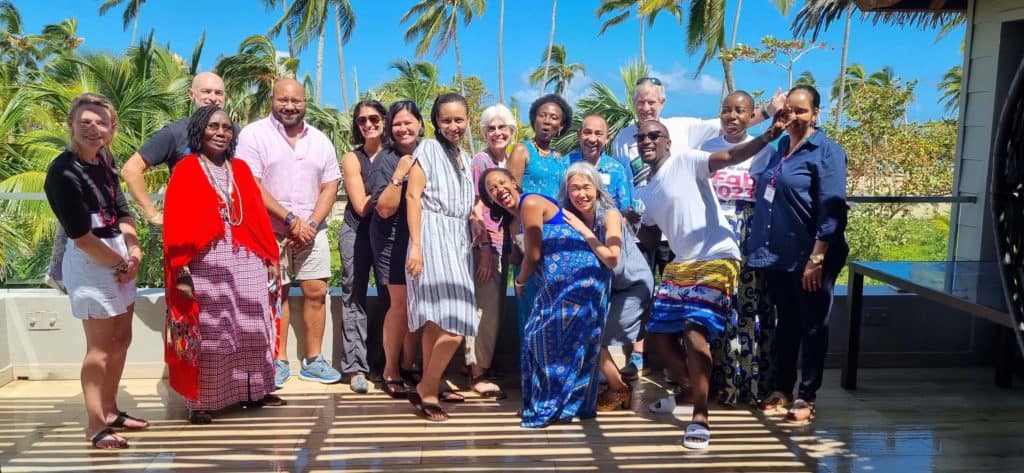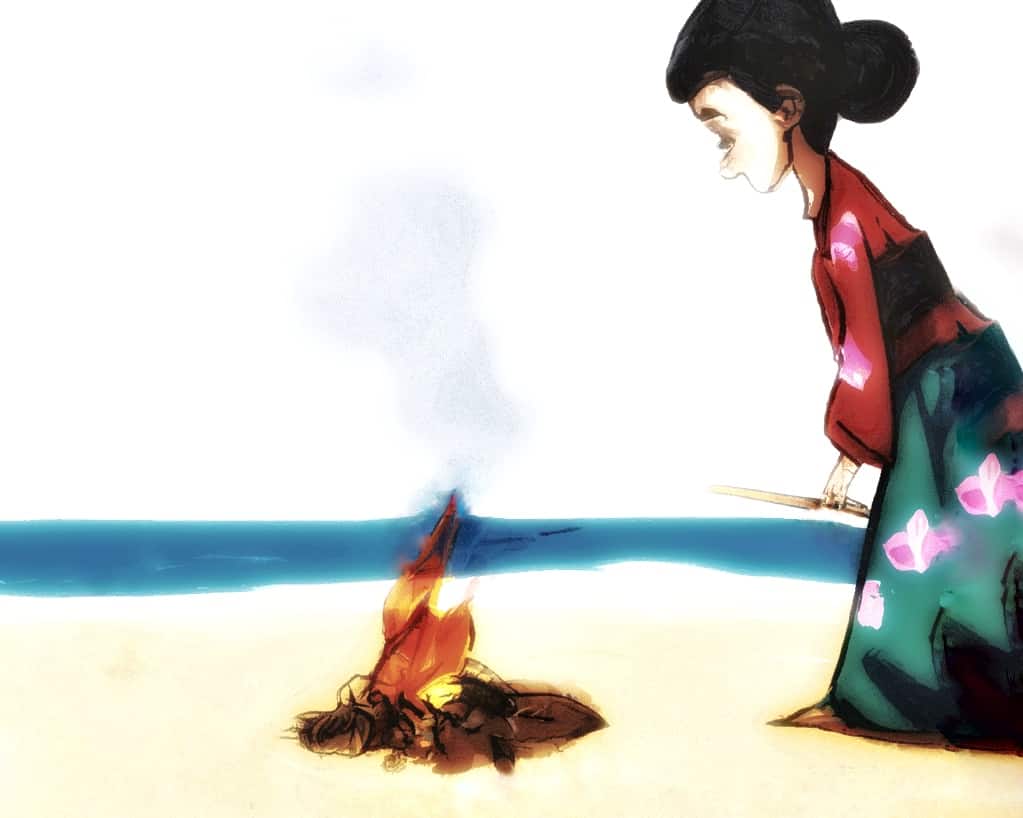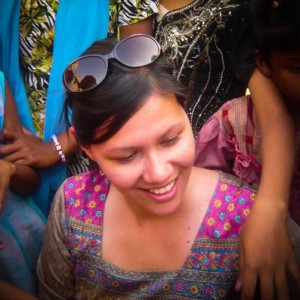After attending Opportunity Collaboration, I always return home with new friends, new stories, and things to continue pondering. Like some of my other posts, this is more personal and focused on leadership lessons.
Some of the stories are alarming, and at this year’s conference, I was reminded again of how privileged I am to have a family that supported and encouraged my education. To know that there are still cultures where opportunities for even a high school education are not possible or permissible for all women saddens me. I want to imagine it as a story from a history page, not as a current telling of how things are in my new friend’s home. There is little I can do to change this story.
Perhaps, my role is simply to bear witness to her personal story, to hear her perspective, to be a friend, to support her efforts, and to be an advocate for awareness. Her story is not mine to share, but if you are interested in learning more about her organization, please reach out, and I will personally connect you.
A lot of what I pondered during this trip was related to perspective and how it impacted my personal and professional relationships and my leadership abilities.
As a global citizen, I have always challenged myself to broaden my perspective and to have genuine empathy for the experiences of others. Truth be told when I come to a poverty alleviation conference, it resurfaces my own lived experiences, and I can relate more than I realize. That then evokes feelings of tremendous gratitude for the privilege I know I now possess. It may be why I feel such a strong sense of responsibility to Do Work That Matters.
Is There a Downside to Empathy?
I am usually “others” focused. In my professional work and perhaps in my personal life, I want to know what others think and feel. When I don’t know, I use context and observation to create narratives for what I think they feel. The positive word for this is empathy. It is a vital skill at the core of my work as a strategist on impact-driven and human-centered design.
However, I sometimes may deflect and fail to express, understand, or process my feelings until I can see them mirrored in another person’s experience. Great for my work, but maybe not so great for my personal well-being.
I’m not sure, but I seldom ask myself, “What do I think of that” versus asking others, “What do you think of that?” My requests are seldom stated as “I want…” but rather as “Do you want…” and sometimes this becomes, “Based on all the information I have, I believe this is best for you, and so I want…” This approach is fine when I’m in an advisory role, and our clients are the final decision-makers. It’s not the same when asking for help or when I ultimately need to make the final decision.
Finding the Right Ally
Another story I heard was from an organization focused on supporting female entrepreneurs. They realized that they needed a program focused on male engagement. After evaluating their program, they found that an important factor in the success of female entrepreneurs is their support system and having their spouses, fathers, and brothers as allies in support of their business endeavors. This support made them stronger and, thus, made their families and communities stronger.
As a female entrepreneur, my strongest supporter is my spouse — my partner in business and life. So, I can relate to this. What I hadn’t realized, perhaps until I thought more about this story from my own perspective, is how fiercely I tend to react when I feel even slightly like I’m losing that support. I’m not, of course, but that goes back to my tendency to create narratives when I don’t know what others think or feel.
What I know for certain is that I value Michael’s support immensely. I felt heartbroken for the women whose husbands shunned them for starting their businesses.
Processing my leadership hurdles and gratitude through the stories and struggles of others is a weird thing, but it helps me have deeper empathy and a better understanding of what matters to me and what strikes a chord of strong emotion.
Learning the Leadership of Inner Development Goals
We did an exercise as a group on the Inner Development Goals (IDGs.) The reason for these goals is the realization that we (in a global sense) are not on the right trajectory to achieve the UN Sustainable Development Goals (SDGs) within the proposed timeline. It is theorized that by working on these IDGs, we can expedite our impact on the SDGs.
Let’s be clear, it is not a groundbreaking new framework for how we approach problem-solving. Many religions, leadership practices, and self-help books share similar concepts. But, we often forget their importance and need a reminder.
The Inner Development Goals include:
- Being
- Thinking
- Relating
- Collaborating
- Acting
The questions asked during our group exercise were:
- If you have to choose one, which is most important?
- Which do you spend the most time on?
- Which, if improved, would make the most difference?
- How would you like to show up, given the circumstances of your tendencies, to make the most difference as a collective?
Here’s where I know my strengths and perspective are different from others. I know where I must ask for help or surround myself with those who possess other strengths and perspectives.
My answers were: Relating, Collaborating, Relating, and Collaborating.
See what I mean about being “others” focused? I know this about myself, and it makes sense that my work since my role focuses on strategy and consulting.
Yes, we build websites, which could be categorized as Acting, but we do so in the service of someone else’s program or project. I believe we are Collaborating to achieve a positive impact. I am good at serving in this role. I strongly believe that without Relating, we cannot fully comprehend the problem or architect a solution. From my perspective, we are best at Collaborating when we first relate to others and have great compassion for their cause.
Leaning into Our Strengths and Leaning on Each Other
It is not until I am forced to slow down that I spend much time Being or Thinking, and certainly, as a business owner, I must do a lot to Act, but these are not my natural states. It’s not where I gravitate or find the most joy. I have to be intentional in spending time Being. I dislike overthinking and am impatient when… well, always. I am probably always impatient unless I’m Relating or Collaborating. I ask for your grace, and if you sense my impatience, please call me on it.
We will all have different answers, which is important to recognize because all five IDGs are crucial to success. To make a greater impact on the SDGs encompasses all of the IDGs. That means leaning into our strengths and each other. That’s why the term “collective impact” exists. We are stronger together.
I also realize that I could practice and grow in the areas that feel less natural. I do this best when learning from someone who possesses that strength. It’s where having a diverse network of supporters with different perspectives is valuable. My OC Impact Leadership Circle was perfect for fostering that network.

I mentioned that others’ stories of poverty heightened my awareness of my poverty growing up. I was genuinely surprised. How did I not know? I lived it. I remembered it. It’s not like I didn’t remember my own stories. Yet, when others shared their stories, I felt deep emotion toward their experience, and only then did I realize that I felt similarly about my own experience. I haven’t fully unpacked that, but I’m going to surmise that I don’t spend enough time Being. While I value this and have a mediation practice, I tend to avoid Being in the past, and I try to spend a lot more time Being in the present.
Building a Fire
Another exercise we did as a group was to build a fire (theoretically, not an actual fire). In this scenario, we described what was needed for our fire: kindling, logs, oxygen, a spark or match, and perhaps fuel. Then, we had to name our logs.
Some logs were negative things that were heavy and took a long time to light. Some logs were positive traits, experiences, or responsibilities. Some lit more quickly and brought us joy. Some burn much longer than others. Some burn out, and we never relight them. From my perspective, all of my logs felt necessary, and I struggled to remove any, even when instructed that too many logs would smother my fire and prevent it from lighting.
The arrangement of our logs was important to keep our light burning long and bright. Creating space, creating patterns, and knowing the balance and how they would burn and fall were also important. When looking at the responsibilities and things I value through this lens, I can start to see some things that could cause burnout or overwhelm me. It begs for a level of self-leadership.
One recent experience came to mind when naming my logs. I realized that some logs were placed upon me. For example, winning a big award was like building a bonfire that was so big that the fire felt impossible to manage. While others saw this as positive, it no longer felt like my fire, and it was overwhelming. When reconciling my feelings around this award, I changed my perspective and started to see it as a fire for all who helped me achieve the things I have achieved. It wasn’t just my fire. I didn’t need to manage it alone.
Another insight is that fire can be shared, and doing so does not diminish your own light. The act of building our fire allows others to receive light.
Lastly, when holding a leadership role, we are responsible for understanding what logs we place on our team and helping them maintain their fires or at least the portion we place upon them. First, we must understand and maintain our fire because we can’t lead others if we burn out.
With Gratitude
If you’ve read this far, thank you for indulging my ramblings as I process this inner work. I know it’s work I must continue to do so I can be my best self and help Grow Positive Impact.
Thank you to my Opportunity Collaboration community — friends old and new — for facilitating these sessions and making us think about how we show up for ourselves and others, and how we can continue to grow in our leadership.

